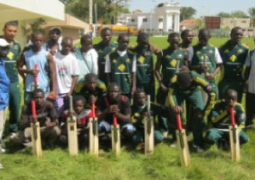(Thursday 24th October 2019 Issue)
Greenpeace
Africa, an international organization that works in the protection of
environment Wednesday launched a report activity on fishmeal industries in
Senegal, Mauritania and The Gambia.
The
48-page report, which contains the impact of industrial activities of fishmeal
factories within the Sub-region, also brings to the fore an updated livelihood
challenge faced by local communities including the heavy reduction on small
pelagic fish in the ocean which affects the local market.
In
his report presentation, Dr Alieu Bah, political adviser of Greenpeace Africa
said the number of pelagic fish currently left in the ocean has already served
as a food security threat towards the local communities.
This,
he mentioned, is mainly due to the ongoing over-fishing activities in the
waters as well as the emergence of fishmeal factories established in countries
namely, Senegal, Gambia and Mauritania.
Bah
indicated that the current number of fishmeal factories that are established in
Mauritania amounted to 39 out of which 33, he said, are presently operating. He
explained that 8 are currently in Senegal out of which, 4 are operational.
“The
Gambia which has 3 fishmeal plants are all operational. Over 600, 0000 people
living in different local communities entirely depend on the pelagic fish as a
source of food”.
The
figure, he said, is currently faced with serious challenge of getting fish as a
source of food for simple balanced diet, while blaming it on the construction
of fishmeal industries along coastal communities that are denying local
communities the food to consume everyday.
He
added that the over-fishing activities in our waters has not only posed a
serious threat to food insecurity, but also created a climate change impact
that is negatively threatening the livelihood of many local fishing
communities.
“Studies
have shown that by 2050 the small pelagic fish yields in Senegal, Mauritania
and the Gambia are predicted to fall by 10-15% as compared to the catches made
around 2000.”



